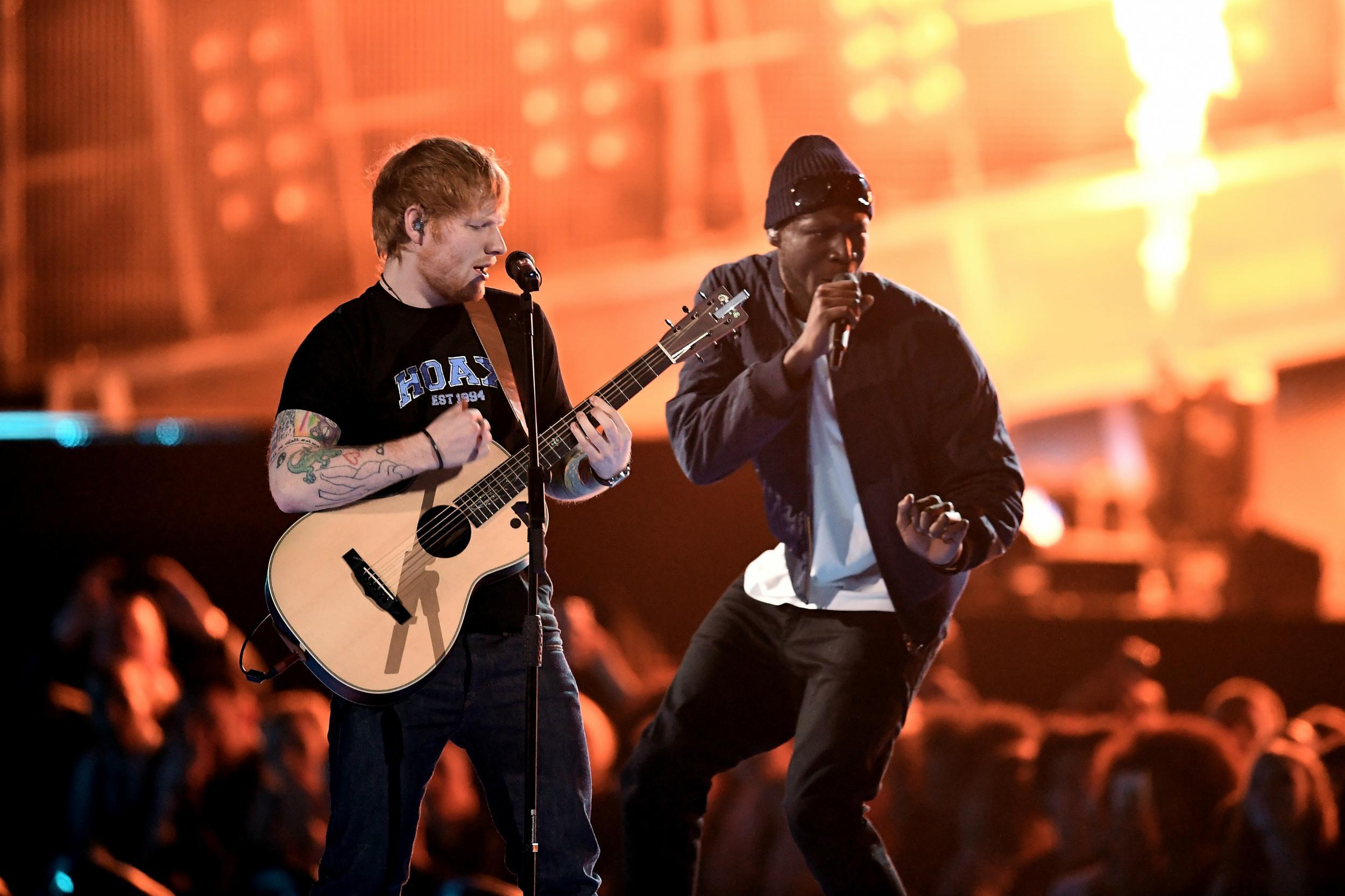UK record label revenue growth returns to Britpop levels
Record companies are now aiming to build on major UK success stories such as Ed Sheeran, Stormzy and Rag'n'Bone Man

Your support helps us to tell the story
From reproductive rights to climate change to Big Tech, The Independent is on the ground when the story is developing. Whether it's investigating the financials of Elon Musk's pro-Trump PAC or producing our latest documentary, 'The A Word', which shines a light on the American women fighting for reproductive rights, we know how important it is to parse out the facts from the messaging.
At such a critical moment in US history, we need reporters on the ground. Your donation allows us to keep sending journalists to speak to both sides of the story.
The Independent is trusted by Americans across the entire political spectrum. And unlike many other quality news outlets, we choose not to lock Americans out of our reporting and analysis with paywalls. We believe quality journalism should be available to everyone, paid for by those who can afford it.
Your support makes all the difference.British record labels have seen their fastest rate of revenue growth since the height of Britpop in the mid Nineties, according to industry association the BPI.
Combined revenue from streaming, downloads, physical sales and licensing for use in films, TV and video games rose by 10.6 per cent to £839m in 2017.
Thanks in part to the boom in subscription services such as Spotify, which increased by 41.1 per cent, the rate in growth for music industry income was the fastest since 1995 when revenues saw a 10.7 per cent bump as bands like Oasis, Blur and Pulp enjoyed immense popularity.
Revenues from streaming reached £388.8, overtaking physical formats - which took £310.4m - for the first time.
Revenue from vinyl sales also rose by 24 per cent, which means the market for vinyl is now one fifth of the size of the CD market.
Record companies are aiming to build on major UK success stories such as Ed Sheeran, Stormzy and Rag'n'Bone Man. Eight of the UK's 10 best-selling albums of 2017 were by homegrown talent, with Drake and Pink being the only outside entries. Sheeran's third album Divide was the most popular record across all formats last year and broke several industry records.
Geoff Taylor, chief executive of the BPI and the annual Brit Awards, said: "The changes labels have made to their business models and their investment in new talent have borne fruit with rapid revenue growth in 2017.
"We are likely to see a continuing rise in 2018, with increasing awareness among consumers about the benefits of music streaming, and new developments that are likely to encourage the uptake of subscriptions, such as the launch of YouTube's premium music service and the growing popularity of smart speakers in the home."
Following predictions that streaming would overtake physical sales in the UK last year, Taylor said that while the British music sector was in rude health, the government should prioritise creative industries in a post-Brexit world.
"It means making sure that UK artists can tour freely in EU markets and that UK businesses can access the best talent. It means taking firm action against illegal websites that deny artists a living, and it means making clear in UK law that huge online platforms must pay fair royalties for the music they use."
"If we do this, the future for British music, which is already one of our leading exports, will be very bright," he said.
Join our commenting forum
Join thought-provoking conversations, follow other Independent readers and see their replies
Comments